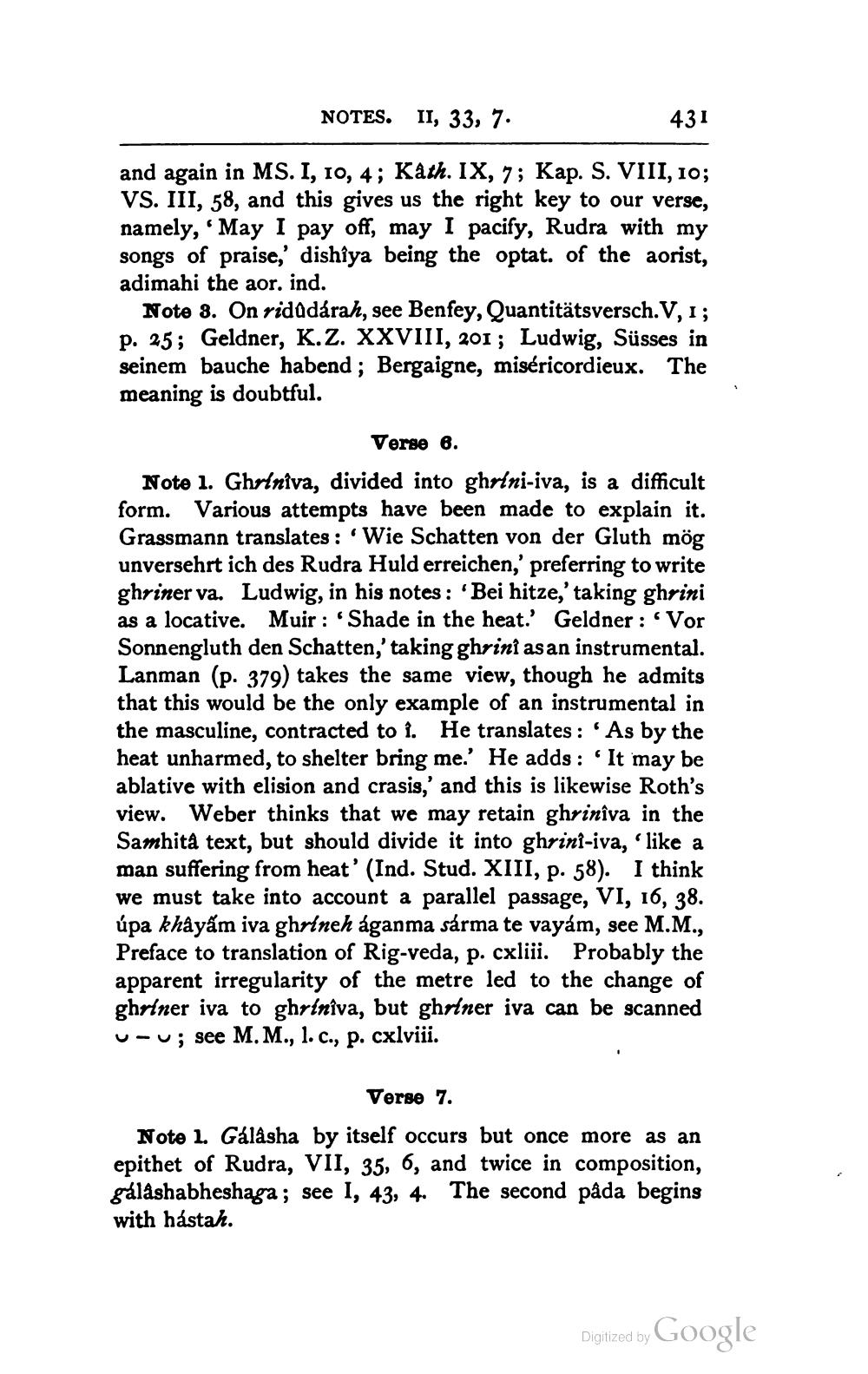________________
NOTES. II, 33, 7.
431
and again in MS. I, 10, 4; Kath. IX, 7; Kap. S. VIII, 10; VS. III, 58, and this gives us the right key to our verse, namely, May I pay off, may I pacify, Rudra with my songs of praise,' dishîya being the optat. of the aorist, adimahi the aor. ind.
Note 8. On ridadárah, see Benfey, Quantitätsversch.V,1; P. 25; Geldner, K.Z. XXVIII, 201; Ludwig, Süsses in seinem bauche habend ; Bergaigne, miséricordieux. The meaning is doubtful.
Verse 6.
Note 1. Ghriniva, divided into ghrini-iva, is a difficult form. Various attempts have been made to explain it. Grassmann translates : 'Wie Schatten von der Gluth mög unversehrt ich des Rudra Huld erreichen,' preferring to write ghriner va. Ludwig, in his notes : 'Bei hitze,' taking ghrini as a locative. Muir : ‘Shade in the heat.' Geldner : 'Vor Sonnengluth den Schatten,' taking ghrini asan instrumental. Lanman (p. 379) takes the same view, though he admits that this would be the only example of an instrumental in the masculine, contracted to i. He translates : 'As by the heat unharmed, to shelter bring me.' He adds : It may be ablative with elision and crasis,' and this is likewise Roth's view. Weber thinks that we may retain ghriniva in the Samhita text, but should divide it into ghrini-iva, like a man suffering from heat' (Ind. Stud. XIII, p. 58). I think we must take into account a parallel passage, VI, 16, 38. úpa khayám iva ghrineh áganma sarma te vayám, see M.M., Preface to translation of Rig-veda, p. cxliii. Probably the apparent irregularity of the metre led to the change of ghriner iva to ghriniva, but ghriner iva can be scanned u-u; see M.M., 1. c., p. cxlviii.
Verse 7. Note 1. Gálasha by itself occurs but once more as an epithet of Rudra, VII, 35, 6, and twice in composition, gálåshabheshaga; see I, 43, 4. The second pâda begins with hástah.
Digitized by
Digized by Google




